Beyond 'adopt, don’t shop': Caring for rescues during a pandemic
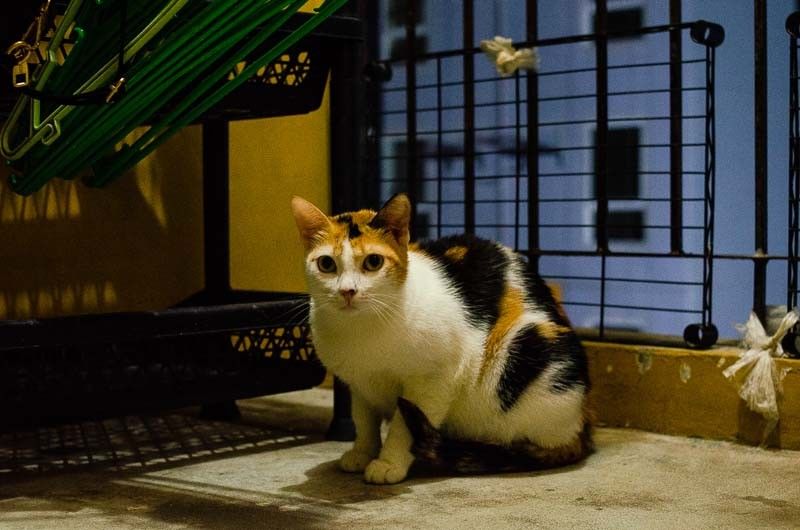
MANILA, Philippines — "A pet is a lifetime commitment," says the ad campaign of a local animal shelter.
And Linda Bansil holds these words close to her heart. Because what uncommitted person would walk kilometers at high noon just to bring one runover cat to a capable veterinary clinic?
On March 31, 2020, at the onset of the pandemic, the 46-year-old animal advocate rescued Pao — one of her foster cats, who was three months old at the time — after the latter was run over by a car. The cat's jaw was damaged in the accident, and had to be operated on immediately.
But because it was at the beginning of the community quarantine, land travel proved difficult.
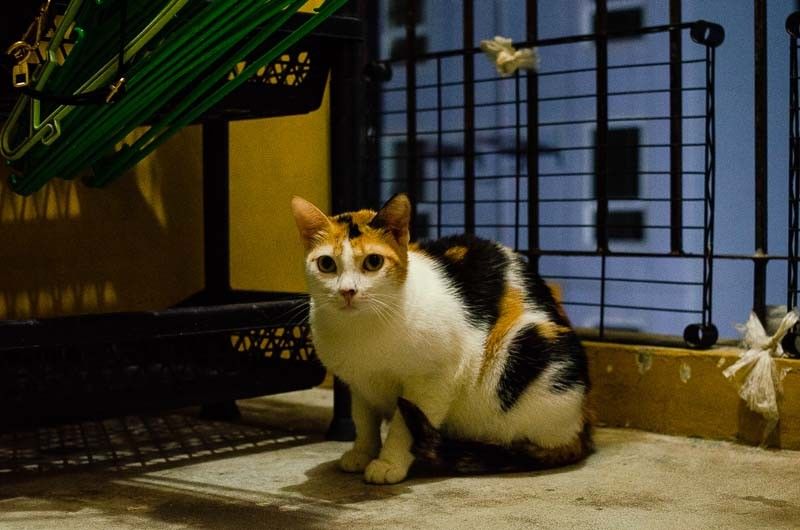
"My friend and I took Pao for an X-ray. We walked from East Ortigas, Pasig all the way to Antipolo, to Assumpta Vet Hospital. It was almost 12 kilometers of walking, one way, and there was even an uphill slope. But we pushed through because we wanted [Pao] to be examined," she said in Filipino in her Facebook post asking for help. Her post garnered hundreds of shares.
Looking back, Linda feels amazed but unsure.
"We feel like it's hard to replicate the energy and the circumstances," she says in Filipino.
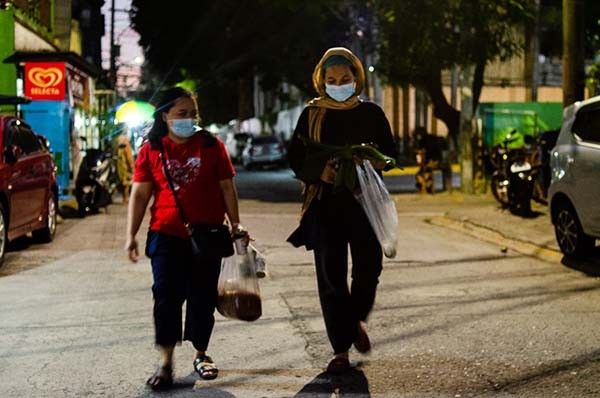
These days, she no longer walks 12 kilometers for her foster cats, but she does walk around their neighborhood every night, feeding around 30 to 40 strays with her friend and partner rescuer Dada Mendizabel.
At 6 p.m. on the dot, the partners head out with masks on, plastic bags full of dry cat food, cans of wet food, and leaves that Linda gets from trees in the neighborhood. Just the mere sound of their footsteps draws the felines to them. As each cat approaches, the pair calls them by names they have given the strays.
Linda recalls having to miss their feeding program once.
"They were having a hard time, and [they were] looking for us. It was heartbreaking. So we haven’t skipped a day since!" she said in Filipino.
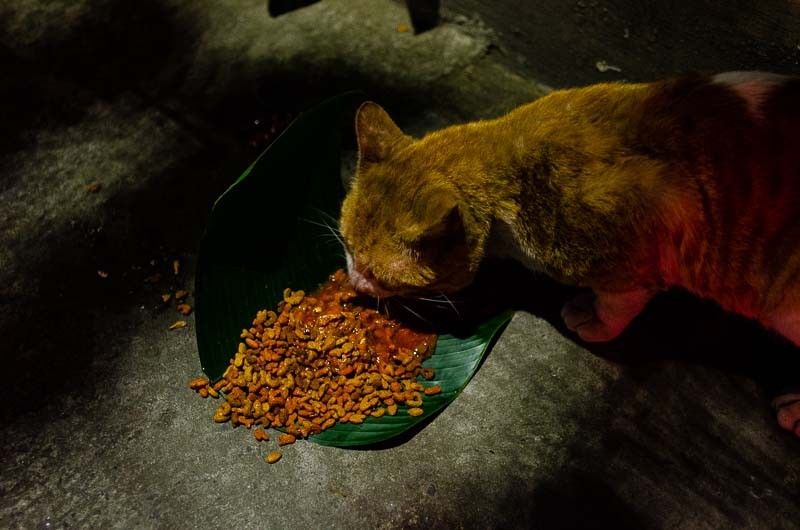
True to her promise of committing to the cats, Linda also makes sure that they are looked after in other aspects.
"We post for adoption, and we also spay community cats; we make friends with [them], and make friends with those who have pets, too, to inform them about spaying."
Since their partnership began in 2018, Linda and Dada have already trapped around 30 cats for spaying. Four of them were spayed just last February.
The night before their free spay-neuter, or kapon, event on February 27, the partners set out to trap five of their feline friends.
The plan sounded easy enough, but the execution was not. And quite unexpectedly, they failed to capture their first three targets. But, as luck would have it, they would manage to capture all but one by nighttime.
The captured females were successfully spayed at a free kapon event in Navotas and released the next day.
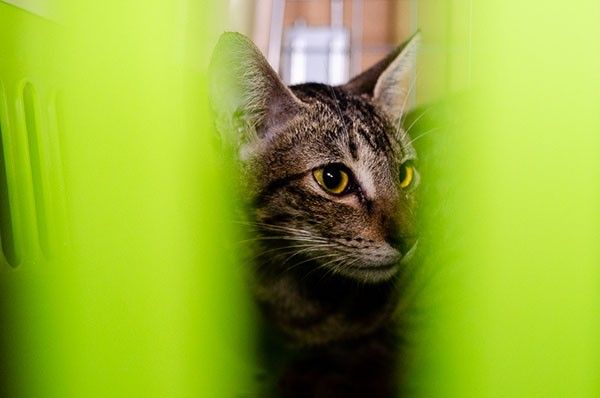
Situations now are no longer as tough as two years ago, but the two women still encounter snags along the way. Greatest of these is finding funding for the food they feed their fosters.
"We spend around P300-350 a day. It's not enough at times," says Dada.
"It reaches 15 [thousand], if we include wet food," adds Linda. "And that’s just for the nightly feeding."
Adding to their predicament is the seemingly never-ending number of strays they find.
In Navotas, Bansil found Rumi, a small, male gray tabby, whom she fostered for a couple of months before finding him a "furever home" last April.
"The kittens we see on the street are just so many; adoption is not enough. Cats make babies every three months, even while breastfeeding, so every month or so we have spay activities."
Most of the strays Linda finds are just near her vicinity. And that's just in Pasig.
"Like all other cities, Pasig has a stray animal problem," says Dr. Emma Sanchez, Pasig city veterinarian, through email.
The Pasig Veterinary Services Department (VSD) hopes to minimize the stray population by holding free spay-neuter events in every barangay — and occasional big events like the one held on March 1 at a shopping center in the city along with other mandated services like free vaccinations — and the more traditional impounding of animals.
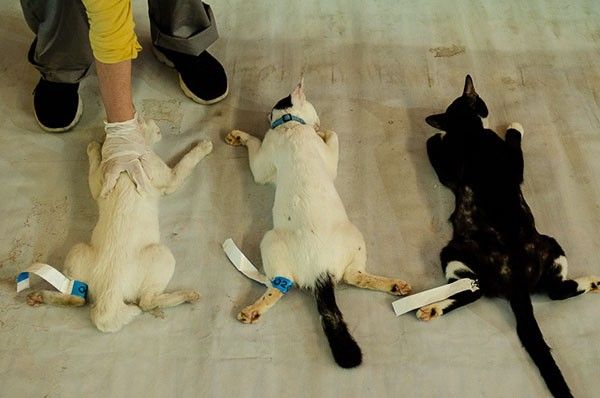
Dr Sanchez adds that the VSD appreciates initiatives coming from non-government organizations and individuals that "champion animal welfare concerns."
Linda says they have never applied for the free spay events held by the VSD because of schedule conflicts but lauds the proactive approach the department has towards strays.
She notes that government agencies are more capable of implementing such activities, compared to individual efforts from rescuers like herself and Dada.
"Take our street for example: There are so many cats, and there are only two of us. But we were able to spay. For sure our government can do better, since they have access to everything."
She hopes for better services to help curb the stray population, which, in turn, will make rescuing much easier, and the lives of the rescues much better.
"[Dada and I] feel like the cats will gain more friends—human friends. They will get newfound respect."
--
Maro Enriquez is a freelance journalist and media literacy advocate based in Metro Manila
- Latest
- Trending





























